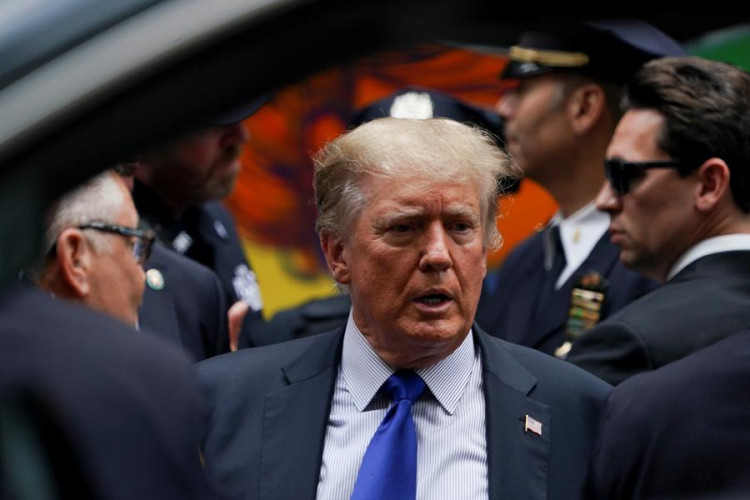Former President Donald Trump recently tried to use the family of Democratic vice presidential nominee Tim Walz to damage his political standing. This attempt, however, has not only fallen flat but has also highlighted the futility of trying to weaponize familial disagreements in the political arena.
The controversy began when Trump took to social media to thank Jeff Walz, Tim Walz's estranged brother, for what he claimed was an endorsement. The post included a photo of people wearing "Walz's for Trump" T-shirts. Trump seemed eager to leverage this "endorsement" as a blow to Tim Walz's candidacy, likely aiming to mimic the impact that family discord had in his own political battles.
However, the strategy quickly unraveled. For starters, the photo Trump shared did not include Jeff Walz at all. Instead, it featured distant relatives-second cousins to be exact-who Tim Walz's sister revealed are not even closely connected to the governor. Moreover, the shirts themselves were marred by a punctuation error, turning what was supposed to be a show of support into a minor grammatical embarrassment.
The endorsement itself was flimsy at best. Jeff Walz, who has had little contact with his brother over the past eight years, initially criticized Tim Walz on Facebook, claiming he had stories that would reveal the governor's unsuitability for office. Yet, when pressed for details, Jeff's "stories" turned out to be nothing more than trivial childhood anecdotes. "Nobody wanted to sit with him, because he had car sickness and would always throw up on us, that sort of thing," Jeff told NewsNation, adding that there was nothing more salacious to uncover.
Jeff Walz's half-hearted engagement in the political fray only further underscored the failure of Trump's approach. Jeff admitted to NewsNation that he regretted making the post and expressed a desire to stay out of the political spotlight. He clarified that his initial comments were not meant to be a serious political statement but rather a way to distance himself from his brother's ideology, which he opposes. This revelation drained the situation of any real political potency, leaving Trump's attempt to create a scandal looking more like a nonstarter.
Observers have noted that Trump's strategy might have been influenced by his own experience with family members who have publicly criticized him, such as his niece Mary Trump and nephew Fred Trump III. Yet, the parallels between the Trump family dynamics and the Walz family situation are weak at best. While Trump's relatives have published damning accounts of their experiences with the former president, the Walz family discord lacks the same gravity or relevance.
Moreover, the entire episode has shed light on a broader phenomenon in American politics-how family dynamics often play out publicly, especially in high-stakes elections. Historical examples abound, from the Roosevelt and Kennedy families to more recent political dynasties, illustrating that even presidential families are not immune to internal disagreements. However, as Tweed Roosevelt, great-grandson of Theodore Roosevelt, pointed out, "People somehow think that presidential families are different. They aren't. They're just like every other family."






